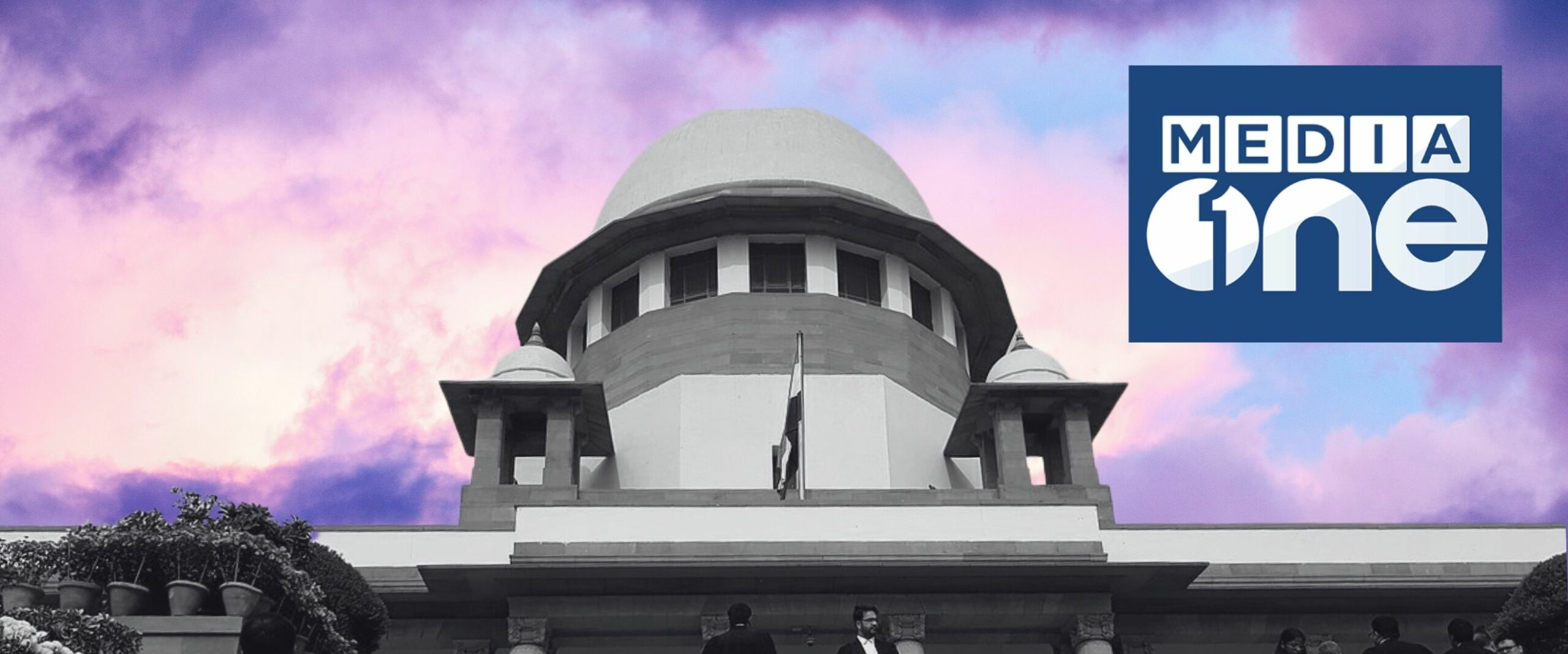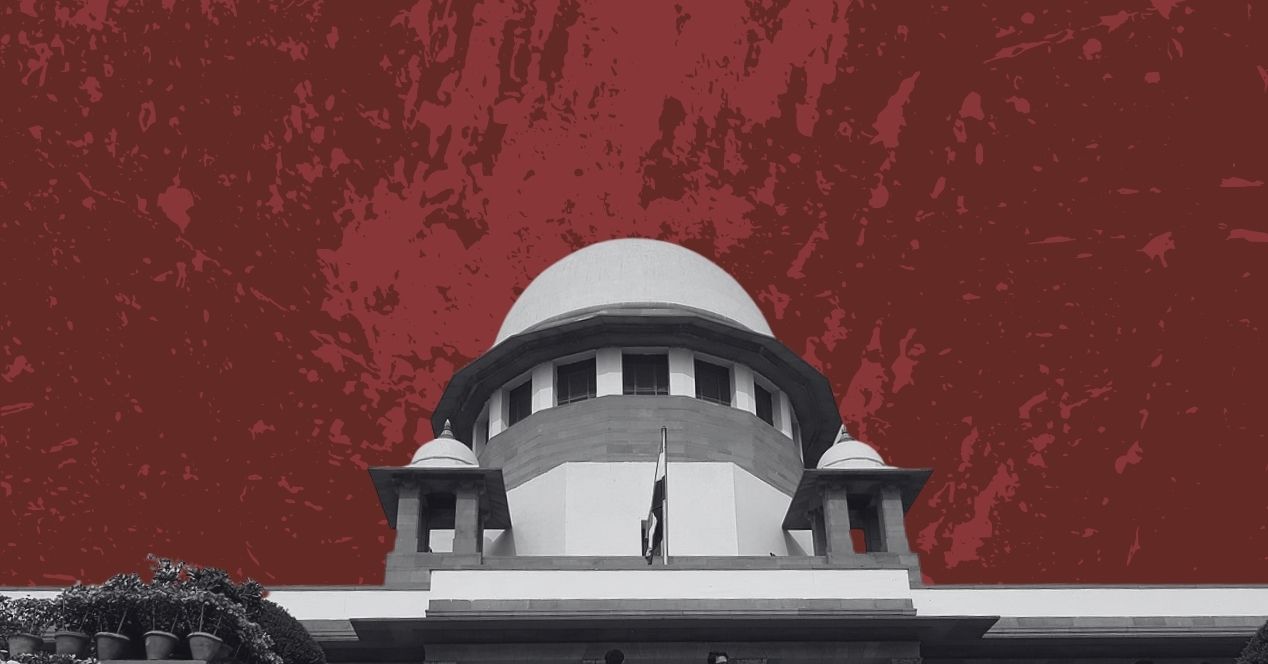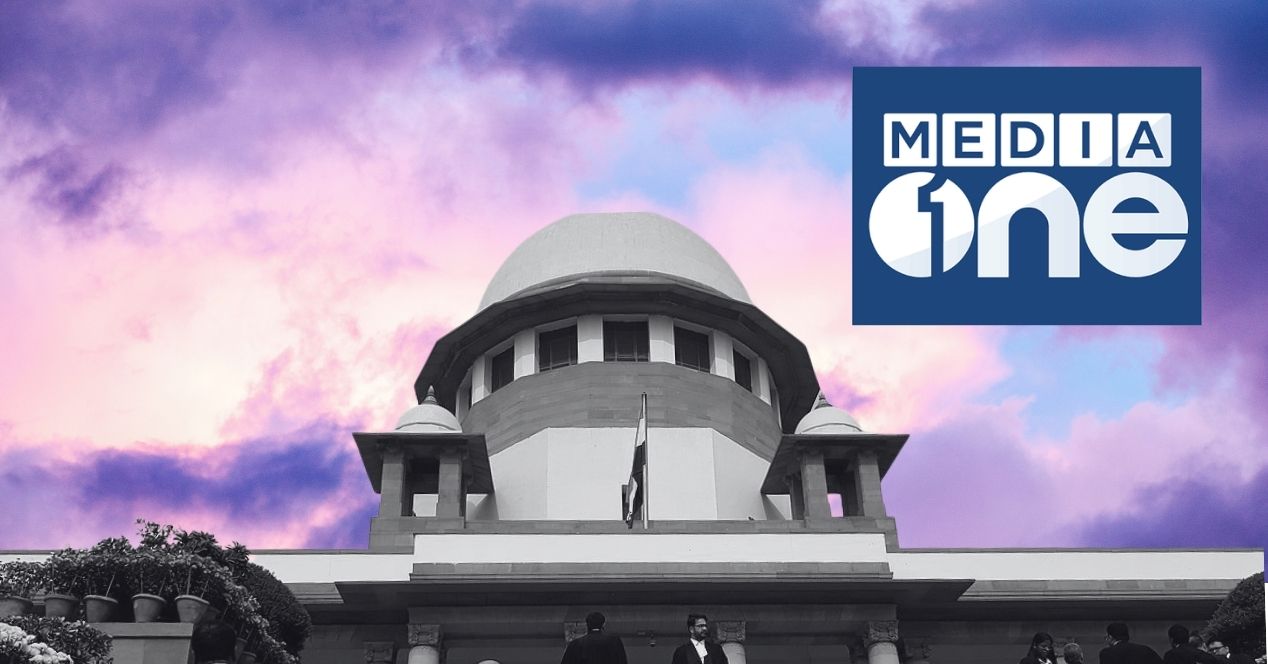Analysis
MediaOne Ban: SC To Decide If the Government Can Refuse Revealing Reasons For Ban On National Security Grounds
MediaOne opposed the practice of handing documents to Court in sealed cover stating that it disadvantages the opposite party

On November 3rd, 2022, Justices D.Y. Chandrachud and Hima Kohli reserved Judgment in the Union Government’s broadcast ban of Kerala based TV channel MediaOne. Senior Advocates Dushyant Dave, Huzefa Ahmedi and Mukul Rohatgi, appearing for the TV channel and its editor, vehemently contended that the Government should have revealed the reason for denying them security clearance. The lawyers argued that the Union’s decision to submit evidence against MediaOne under sealed cover denied the TV channel a chance to defend themselves.
During the course of the hearing, the Bench also asked the Union if it should have given MediaOne an opportunity to present their side of the case, based on the documents it had presented in a sealed cover.
Background:
MediaOne TV is a Malayalam news channel operated by the Jamaat-e-Islami Hind, an Islamic organisation. MediaOne TV first received its license from the Ministry of Information and Broadcasting (I&B Ministry) in 2011, and was launched in 2013.
In January 2022, the I&B Ministry refused to renew its transmission license and issued an order asking the company to stop its operations. The I&B Ministry stated the Ministry of Home Affairs (MHA) had denied security clearance to the channel. In its communication to MediaOne TV, the I&B Ministry cited considerations of ‘national security’ and public order in its refusal to renew the channel’s license.
The ban was challenged before the Kerala High Court, to defend the ban the central government produced certain documents in a sealed cover. These documents were however not shown to MediaOne. The Kerala High Court, relying on the documents in the sealed cover, upheld the ban on February 8th 2022, noting that the ban was imposed to uphold national security.
MediaOne TV challenged the High Court’s decision at the Supreme Court in the first week of March. On March 10th, 2022 Senior Advocate Mukul Rohatgi, appearing for MediaOne, emphasised that the renewal of a broadcasting license does not ordinarily require security clearance. Mr. Rohatgi said that the ban violated the channel’s Constitutional Right to Freedom of the Press under Article 19. Additionally, Mr. Rohatgi argued that the channel had hundreds of employees who would lose employment if the ban continued to remain in force.
On March 15th, 2022, the Supreme Court stayed the Union Government’s broadcast ban of MediaOne TV and permitted the channel to resume operating as usual until the Court reaches a final verdict.
Sr. Adv Dave Argues That Sealed Cover Creates A Bias In The Minds Of The Judges:
Arguing for two sessions on November 1st and 2nd, Mr. Dave stated that the usage of sealed covers in Court violates the principle of natural justice. The principle of natural justice mandates that both sides should have access to material that the other side is relying upon. He argued that when documents alleging national security breach are shown to a judge in a sealed cover, it creates bias the other side cannot refute.
Mr. Dave pointed out that the concept of sealed covers is frowned upon in foreign courts. He contended that press freedom is included in the fundamental right to freedom of speech and expression and it can be restricted only in the interests of public order. The public order risk in MediaOne’s case was unclear, according to him.
He argued that the Cable Television Networks (Regulation) Act, 1995, which provides for renewal of licences for TV channels, does not speak of any security clearance from the Ministry of Home Affairs (MHA). Mr. Dave submitted that the MHA cannot arbitrarily deny licence under the garb of security clearance. He argued that the requirement for security clearance is only at the threshold stage of applying for the channel licence, and not in the stage of renewal.
Mr. Dave relied on the Supreme Court’s Judgment in Arun Shourie’s case (2014) to argue that the Court has in the past refused to accept sealed cover documents which are not part of the affidavit. He also referred to P.Chidambaram’s case (2019) to argue that the Court held that denial of bail on the ground of sealed cover documents is unfair.
Sr. Adv Huzefa Ahmedi Argues That Parties Should Be Informed About Reasons For Denying Security Clearance:
Senior Advocate Huzefa Ahmadi, appearing for the Chief editor of Media One, Pramod Raman, argued that the Union had the benefit of referring to the documents in the sealed cover while arguing the case. However, MediaOne still does not know the contents of the sealed cover. He submitted that the Union cannot always claim immunity from judicial scrutiny by citing breach of national security and public order.
Mr. Ahmadi argued that if the Union claimed that some information was sensitive they could then have redacted that portion, but the grounds on which permission was denied should have been informed to Media One.
Sr. Adv Mukul Rohatgi Argues That I&B Ministry Acted Like A ‘Post Office’ To MHA:
Appearing for the Kerala Union For Working Journalists, Sr. Adv Mukul Rohatgi argued that the Ministry of Information and Broadcasting (I&B) acted like a post office for the Ministry of Home Affairs (MHA) by merely conveying that the security clearance had been denied. Mr. Rohatgi further claimed that the I&B Ministry was acting on the directions of the MHA without applying its own mind.
Bench Questions Centre If It Should Have Communicated The Reasons For Denying Security Clearance To MediaOne:
When ASG KM Natraj appeared for the Union, the Bench asked him if the Union was relying on certain documents/reports it should be disclosed to MediaOne to give them a chance to defend themselves. The Bench also pointed out that the Centre did not accuse MediaOne of committing an offence but it revoked their licence.
The ASG informed the Bench that the details of the Government’s reason for denial of security clearance were sensitive and could not be shared with the channel management. An unconvinced Bench questioned if the government can redact the details to protect the sources of the information and asked if the information itself can be denied. The Bench also asked the ASG to justify their ban when the channel had already been running for 10 years.
Mr. Natraj offered to place the entire files pertaining to MediaOne before the Bench, so that they could peruse it and come to a conclusion on the issue. Justice Chandrachud replied to this asking why these files can’t be shown to MediaOne’s counsels so that they have proper defence. Eventually, the Bench asked the ASG to show the files to them. On seeing the files, the Bench orally observed that some contents of the file appear to be ‘vague’.
The ASG pointed out that reports from Intelligence Bureau (IB) and other agencies are called for on persons who are appointed to high posts. He said that reports are even called for appointment of judges. He argued that once a decision is made based on such reports, reviewing them will lead to a dangerous situation.
The Bench retorted saying that one cannot claim appointments to posts as a vested rights, however both freedom of press and right to run a business are contemplated in the Constitution. Mr.Natraj responded that the TV channel has a right to be considered but no vested right to be granted clearance.
The Supreme Court, on hearing the parties, reserved the case for Judgment. The Apex Court will have to decide whether Judgments can be passed by relying on documents in a sealed cover.


